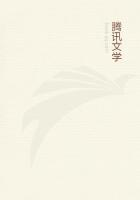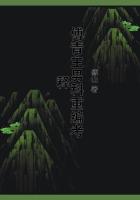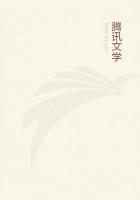The highwater mark of his opinion seems to be given in a passage of the Lectures.He there tells us that,though it is a strange,it is a correct,expression to say,'I am conscious'--not merely of perceiving the inkstand but --'of the inkstand.'(26)Reid's blunder --which,if he really made it,would convert his whole philosophy into one mighty blunder --lay in misunderstanding this.Reid had been startled at his own boldness in asserting the immediacy 'of our knowledge of external things';(27)and therefore weakly admitted that we are conscious of perceiving the rose,not conscious of the rose itself.This comes of distinguishing 'consciousness'from perception,and would end in philosophical suicide.It would seem,then,that according to this doctrine we are bound either to assert that the rose --the visible,coloured,scented object,is revealed in consciousness as part of the 'material world'and therefore exists independently of us,or to admit that God is a liar.It is 'palpably impossible that we can be conscious of an act without being conscious of the object to which the act is relative.'(28)To carry out this theory is the central aim of Hamilton's 'Natural Realism.'Reid's statement might seem to be not a blunder,but a truism.'I am conscious of the rose'means precisely 'I have certain sensations which I regard as implying the existence of a permanent external reality.'But this is to interpret perception as involving an 'inference,'and therefore,according to Hamilton,is to abandon the essential doctrine of Natural Realism.(29)It may seem strange,he admits,but it is true,'that the ****** and primary act of intelligence should be a judgment,which philosophers in general have received as a compound and derivative operation.'(30)'Knowing'and 'knowing that we know'are the same thing;as conceiving the sides and angles of a ******** are the same process,distinguishable in thought,but 'in nature,one and indivisible.'(31)What,then,is this essential judgment?In an act of sensible perception,says Hamilton,I am conscious of myself and of something different from myself.(32)This might seem to define the distinction between 'consciousness'and 'perception.'the object of my thought may,as Hamilton remarks,be a 'mode of mind'as well as a 'mode of matter.'(33)Consciousness of self,we should infer,differs from consciousness of the not-self,and it is just the presence of the not-self which distinguishes perception from ****** consciousness.Hamilton,however,argues that perception is ****** consciousness;or that the distinction,for his purpose,is irrelevant.There is a 'logical'but not a 'psychological'difference.(34)Every act of consciousness implies a conception of the ego.But 'the science of opposites is one.'therefore consciousness of the ego involves consciousness of the non-ego,or,in the ******st possible act of intelligence I must be taken to affirm the existence both of an ego and a non-ego.
If I cannot even think about myself without affirming the existence of an external world,it would be superfluous to look about for further proofs of its existence.But here occurs a singular difficulty.Hamilton has to guard against the transcendentalist as well as against the sceptic.He is therefore not only a 'realist,'but with equal emphasis a 'relativist.'that our knowledge is essentially relative is one of the points upon which he insists most emphatically,and confirms as usual by a catena of authorities.It is,he says,the truth 'most harmoniously re-echoed by every philosopher of every school,except the modern Germans.'(35)The phrase relativity has more than one meaning;but according to Hamilton means at least this:'our whole knowledge of mind and matter is relative --conditioned --relatively conditioned.'Of mind and matter 'in themselves'we only know that they are 'incognisable.''All that we know is therefore phenomenal --phenomenal of the unknown.'
This,then,is a cardinal doctrine.How is it compatible with the Doctrine that the ego and non-ego are given in every act of consciousness?Mind and matter,as we have seen,are separated 'by the whole diameter of being.'they express 'two series of phenomena,known less'(?not)'in themselves than'(?but),in contradistinction from each other.'(36)What is given is not two facts,the ego and the non-ego,but the 'relation.'Somehow,the conscious act implies the presence of two factors,unknowable in themselves.The 'science of opposites'may be 'the same,'but,if I know neither opposite,there can be very little science.
Strangely,Hamilton seems to confuse the difference between knowing a relation and knowing the two things related.He tells us as a rough illustration,that if we consider the perception of a book to be made up of twelve parts,four may be given by the book,four by the sight,and four by 'all that intervenes.'(37)He infers,presently,that the 'great problem of philosophy'is to 'distinguish what elements are contributed by the knowing subject,what elements by the object known.'(38)Between these statements we have a renewed and emphatic assertion of the 'relativity of knowledge.'Hamilton,that is,speaks as if from the fact that life supposes breathing we could infer how far life depends upon the lungs and how far upon the air.From a relation between two things,unknowable in themselves,we can surely learn nothing as to the things separately.Equality of two quantities is compatible with indefinite variation in the equal quantities.(39)The difficulty is increased when we ask how the line is actually drawn.The distinction between subjective and objective corresponds to the distinction between the primary and secondary qualities of which Berkeley had denied the validity.














